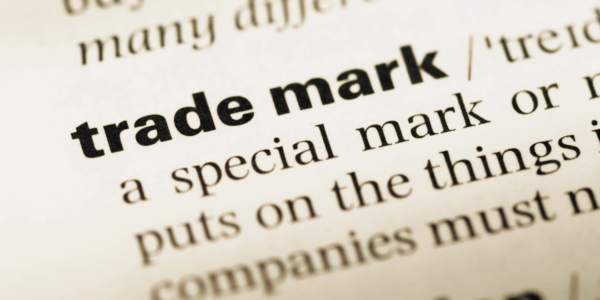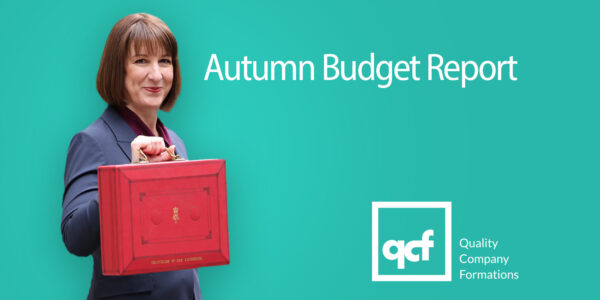Side hustles have taken the world by storm amid high inflation. People have turned to side hustles to boost their income by selling used clothes online or delivering food in their spare time. However, HMRC has now introduced what many people call a ‘side hustle tax’. It means you have to declare your additional income and pay tax on it, if your annual earnings exceed the tax-free trading allowance.
Key Takeaways
- Declare your side hustle income if you earn over £1,000 annually to avoid penalties from HMRC.
- Keep accurate records of all receipts to support your side hustle expenses and reduce your taxable profits.
- Consider registering your side hustle as a limited company for tax efficiency and personal liability protection.
In this article, we’ll guide you through everything you need to know about the new rules. We will explain what a side hustle is, when and how to notify HMRC about it, and how to register a side business with Quality Company Formations.
What is a side hustle?
A side hustle is a way of earning extra money whilst having a full-time job. It’s not a main form of income but rather an alternative way to earn additional cash in your spare time that isn’t from your regular employer.
It can be a casual job you do once in a while or owning a small business (that isn’t your main job). Common side hustles include:
- Selling goods on sites like Etsy, eBay, and Amazon
- Selling pre-owned clothes on sites like Vinted and Depop
- Delivering food (e.g. with Deliveroo)
- Delivering packages (e.g. with Amazon)
- Taxi driving (e.g. with Uber)
- Freelancing
- Part-time jobs
- Casual jobs (e.g. gardening or babysitting)
- Renting out a property or part of it (e.g. on Airbnb)
- Creating online content (e.g. podcasting, blogging/vlogging, or social media influencing)
- Selling items at car boot sales or auctions
Essentially, a side hustle is any form of earning additional income on top of your full-time job.
When you need to pay tax
The rule is that you must declare your side hustle income once you start earning more than £1,000 a year from it (this is the tax-free trading allowance). For example, if you’re in full-time employment and make £400 across the year from selling second-hand clothes on Vinted, you don’t need to do anything.
However, if you’re in full-time employment and you sell £1,020 worth of clothes across the year, you must declare that additional income source.
It’s important to note that the threshold applies to overall earnings made across multiple platforms. Also, even if you don’t exceed that £1,000 limit, it’s useful to keep hold of your side hustle income records, just in case they are requested.
Exemptions
Whether or not your side hustle earnings are taxable depends on individual circumstances. For instance, if you rent out a room in your home under the Rent a Room Scheme, you can earn up to £7,500 a year tax-free (or £3,750 if you share the income with someone else), as opposed to £1,000.
If you only sell personal possessions (physical items that belong to you, like clothes, furniture, and jewellery), you do not need to tell HMRC or pay tax on that income.
However, different rules apply if you make a profit from selling high-value personal items (like luxury fashion, jewellery, or antiques) for more than £6,000 per item. In this instance, you need to report the sale to HMRC within 60 days, and you may be liable to pay Capital Gains Tax (instead of Income Tax).
If you’re unsure if you need to report your side hustle income, you can check this on the HMRC website.
So, what’s changed?
Despite some uproar on side hustle tax, this isn’t actually a new tax rule at all. The tax-free trading allowance hasn’t changed.
In fact, the new rule that was introduced on 1st January 2024 is that individual marketplace platforms must now routinely report their users’ earnings to HMRC once they exceed £1,000 a year. Until then, this information isn’t automatically shared.
In reality, most people selling the odd t-shirt on Vinted are not affected by this. It only concerns those who earn more than the tax-free trading allowance from a side business.
How to pay tax on your side hustle
Paying tax on your side hustle income is different from the way you normally pay tax on your full-time salary. This time, you’ll need to submit a Self Assessment tax return.
If you’re submitting your first tax return, you’ll need to register for Self Assessment (self-employed). Otherwise, sign in to your Government Gateway account using your ID and password. The deadline for filing your online tax return is 31st January, or 31st October for paper returns.
The amount of tax you pay will differ from person to person, depending on how much extra income you’ve earned. Please note that your side hustle earnings could push you into a higher tax bracket, meaning you’ll pay a higher rate of tax than before on this additional income.
Once you’ve submitted your Self Assessment tax return, HMRC will process it and calculate how much tax you owe. You can check if and how your tax rate might be affected on the HMRC website.
If you fail to pay
You may be fined if you are liable to pay side hustle tax but fail to do so. Also, if you miss the Self Assessment deadline or pay your tax bill late, you’ll get a late filing penalty of £100 for the first 3 months.
If your tax return is late by more than 3 months, the penalty will incur interest, and you’ll be charged more the later it gets.
How to reduce your side hustle tax bill
There are certain allowable expenses that you can claim back and reduce your side hustle tax bill. These expenses include anything you’ve had to purchase for business purposes.
For example, if you run a hairdressing business in your spare time, you might need to buy certain equipment/products, or maybe you travel to your client’s homes and you’ve had to pay for fuel or a train ticket to get there.
These are all allowable business expenses that can be deducted from your final tax bill, ensuring you are only taxed on the profits made from your side hustle. For a full list of what you can claim, visit the HMRC website. If your business expenses for the year are under £1,000, you can elect to claim the trading allowance, which is a flat rate of £1,000, which can be used against any income of this nature to reduce your taxable profits.
To claim these costs back, you should keep accurate records of all your receipts to make sure you claim the correct amount. You don’t have to include receipts in your Self Assessment tax return, but it is advised, as HMRC may request supporting evidence regarding your claim at a later date.
Register your side hustle
If your side hustle is a business that trades regularly, you may wish to register it as a limited company. As opposed to operating as a sole trader, a limited company comes with several key benefits, such as:
- A credible/prestigious image that your customers and clients can trust
- A limited company is a separate legal entity
- As a limited company owner, you’ll have limited liability, meaning you have no personal responsibility for its finances
- Tax-efficiency – limited companies typically pay lower tax rates than sole traders, and there are several tax-efficient options for paying yourself
- Your unique business name is legally protected, preventing others from trading under your company’s identity
You can register your side business directly with Companies House, through an accountant, or a company formation agent like Quality Company Formations. Using a formation agent is easier and stress-free, and you’ll be guided through the process by a trained expert.
To register your business with QCF, follow these 4 simple steps:
- Choose a company name – Your name must be unique (unlike any other existing company name). It also needs to avoid some sensitive words and expressions (more details available on the Companies House website). To check if your desired name is available, use our name checker tool.
- Choose your formation package – Choose the right package for your business structure. Prices range between £51.99 and £69.99.
- Checkout and pay – Add optional extras like VAT registration or the Guaranteed Same Day Service.
- Insert company details – Provide key information about your company, such as its name, Standard Industrial Classification (SIC) codes, and shareholder and director information.
If you’re unsure of anything, our helpful team are always here to help and guide you through the process.
Thanks for reading
We hope this article has helped you understand more about side hustles and how additional income is taxed. Remember that a side hustle isn’t your main job, and you only need to report those extra earnings if they go over £1,000 a year.
Also, if you’re active on any marketplace platforms and pass this tax-free threshold, your information will automatically be shared with HMRC.
Finally, if you trade regularly through your side business, it’s worth registering as a limited company to enjoy the significant benefits of being a limited company owner.
Thanks for reading. If you have any questions or comments, please share them with us below.
Please note that the information provided in this article is for general informational purposes only and does not constitute legal, tax, or professional advice. While our aim is that the content is accurate and up to date, it should not be relied upon as a substitute for tailored advice from qualified professionals. We strongly recommend that you seek independent legal and tax advice specific to your circumstances before acting on any information contained in this article. We accept no responsibility or liability for any loss or damage that may result from your reliance on the information provided in this article. Use of the information contained in this article is entirely at your own risk.












Join The Discussion